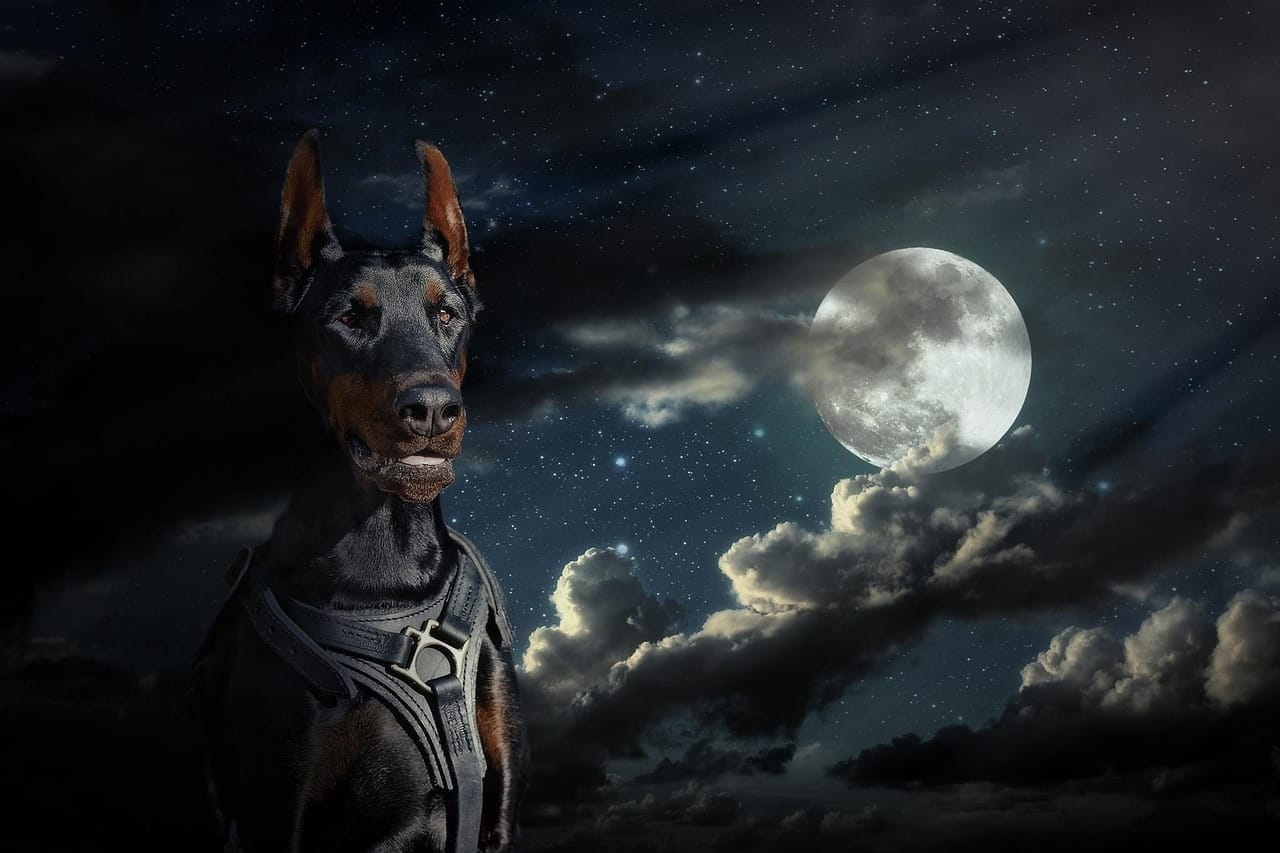
Understanding the sleeping habits of our canine companions is vital to promoting their overall health and well-being. In this article, I will share my observations regarding whether dogs are naturally nocturnal.
Quality sleep is integral to a dog’s physical and mental health, much like it does for humans. Being attuned to their natural sleep rhythms enables us to provide the optimal conditions for restorative sleep, ensuring our dogs live whole, happy lives. A common question when examining dog sleep patterns is whether they are nocturnal creatures. Many assume dogs sleep mainly during the day or night based on anecdotal experience with their pets. However, it is important to note that not all dogs share the same circadian rhythms.
As a dog owner, I have noticed that dogs generally synchronize their sleep-wake cycles to match their human families. Most pet dogs are diurnal, meaning they tend to be active during the daytime and sleep at night when their owners do. This synchronicity stems from their domestication and instinct to adhere to human schedules.
Nevertheless, some breeds may display more nocturnal tendencies, particularly those bred for specific working purposes or with higher energy levels. These dogs may be more alert and energetic at night, requiring customized sleep routines compared to the average house pet. Each dog is unique, and their individual traits and lifestyles can shape their sleep patterns.
While most dogs are diurnal and attuned to their owners’ sleep habits, variations may exist among certain breeds and individual dogs. Catering to their specific sleep requirements is key to overall wellness, ensuring they get the rest they need to thrive alongside their human families.
Observing Dogs’ Daytime Sleep Habits
As diurnal creatures, dogs are naturally most active during daylight hours and inclined to sleep through the night. Having evolved as companions to humans who follow a daytime schedule, dogs have adapted their sleep cycles to mirror our daily routines. This allows them to fully participate in activities like training, play, and social interaction.
In my experience with my dog, I have noticed he follows a clear circadian pattern. He is most energetic when I wake up, eager for his morning walk and playtime. He remains engaged and alert throughout the day, always ready for activities like training and interactive games.
When I am busy with work or tasks during daytime hours, I have observed that my dog will find a cozy spot to relax and nap. Whether curling up on his bed, basking in a sunny patch, or snoozing on the couch, he prioritizes rest during inactivity.
My dog’s daytime sleep consists of short intermittent naps, typically lasting 15-30 minutes. These brief slumbers allow him to recharge his batteries and maintain moderate energy while remaining responsive when needed.
Providing dogs with a quiet, comforting space for daytime sleep is essential. Having a designated sleeping area where my dog can retreat undisturbed has proven invaluable. This gives him the high-quality rest he needs to stay healthy and happy.
In summary, dogs tend to be most energetic during daytime hours as primarily diurnal pets. They naturally conform to humans’ awake schedules. Brief intermittent naps help dogs boost their energy levels while resting when their owners are occupied. By understanding and accommodating these needs, we can ensure our canine friends get the daytime sleep necessary for their overall well-being.
The Adaptability of Dogs’ Sleep Patterns
Based on my observations, while not inherently nocturnal, dogs can adapt to varying sleep patterns. Recognizing their natural tendencies and providing an optimal sleep environment helps ensure a well-rested, contented companion.
Throughout history, dogs have evolved alongside humans as diurnal partners, sleeping at night and active during the daytime. Most pet dogs follow this pattern, engaging in daily activities and routines in sync with their human families’ schedules. This adaptation enables bonding through shared experiences.
However, individual dogs may deviate from typical sleep norms. Some breeds or dogs with intense workloads or energy may exhibit more nocturnal tendencies. Taking into account each dog’s unique needs and tailoring their sleep routine is paramount.
Providing a peaceful, soothing area for sleep is vital for a dog’s well-being. Designating a comfortable, distraction-free zone where they can get uninterrupted rest promotes more profound, restorative sleep. Ensuring they get adequate physical and mental exercise while awake also encourages better slumber.
Understanding the importance of high-quality sleep is essential to a dog’s overall health and contentment. Adequate rest allows them to refuel, sustain energy, and support proper cognitive functioning. As responsible pet parents, prioritizing their natural sleep requirements helps create an environment where our dogs can thrive.
In summary, while not strictly nocturnal beings, dogs’ adaptability enables them to adjust to varying sleep patterns. By comprehending their needs, providing a proper sleep space, and fulfilling exercise and stimulation requirements, we can ensure our loyal companions enjoy healthy, fulfilling, well-rested lives.








Comments (1)
Kartersays:
02/03/2024 at 18:48Your text provides great insight into understanding our canine friends’ sleep habits. It’s important to cater to their individual needs for optimal health and happiness. Thank you for sharing this valuable information!